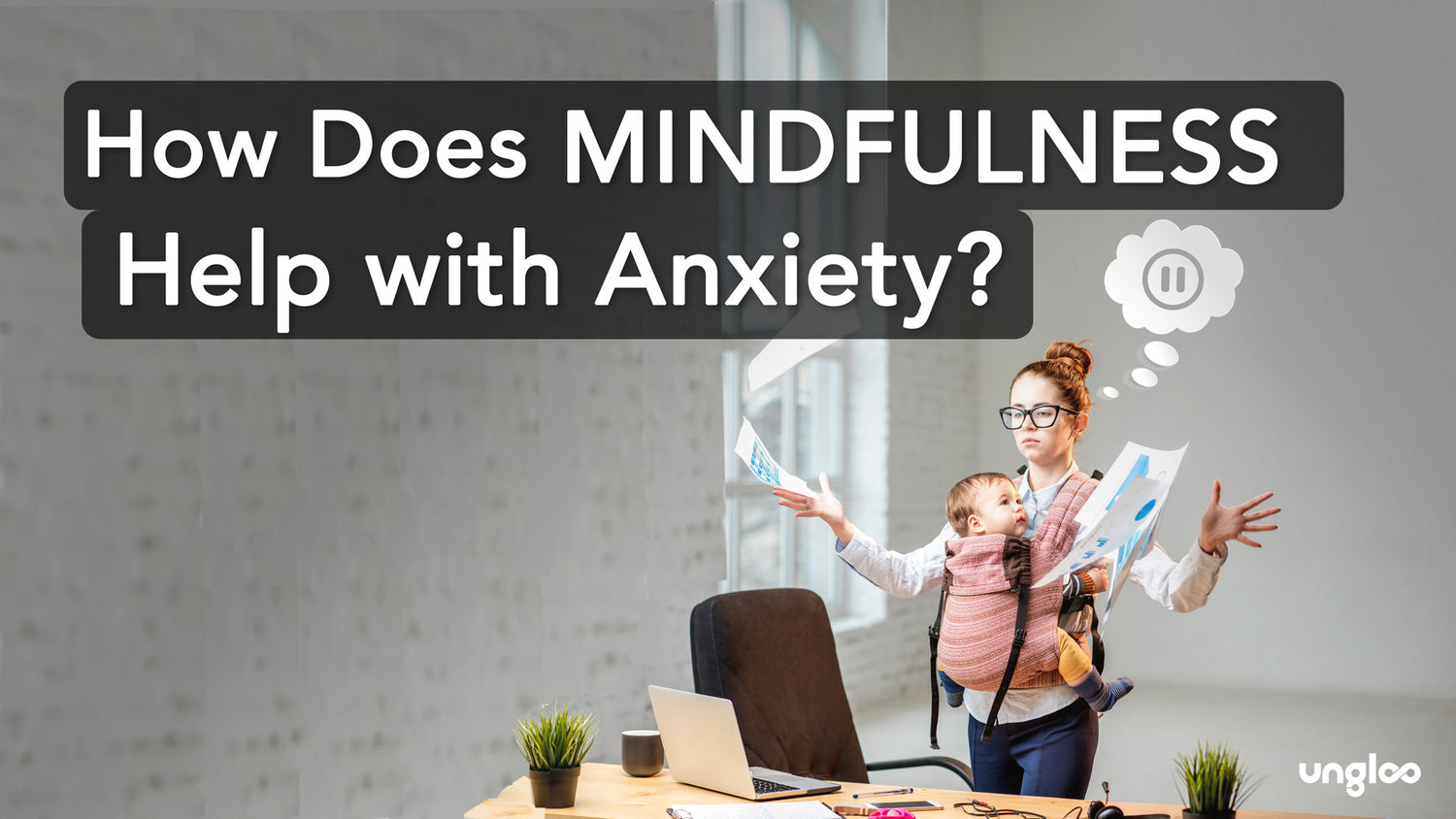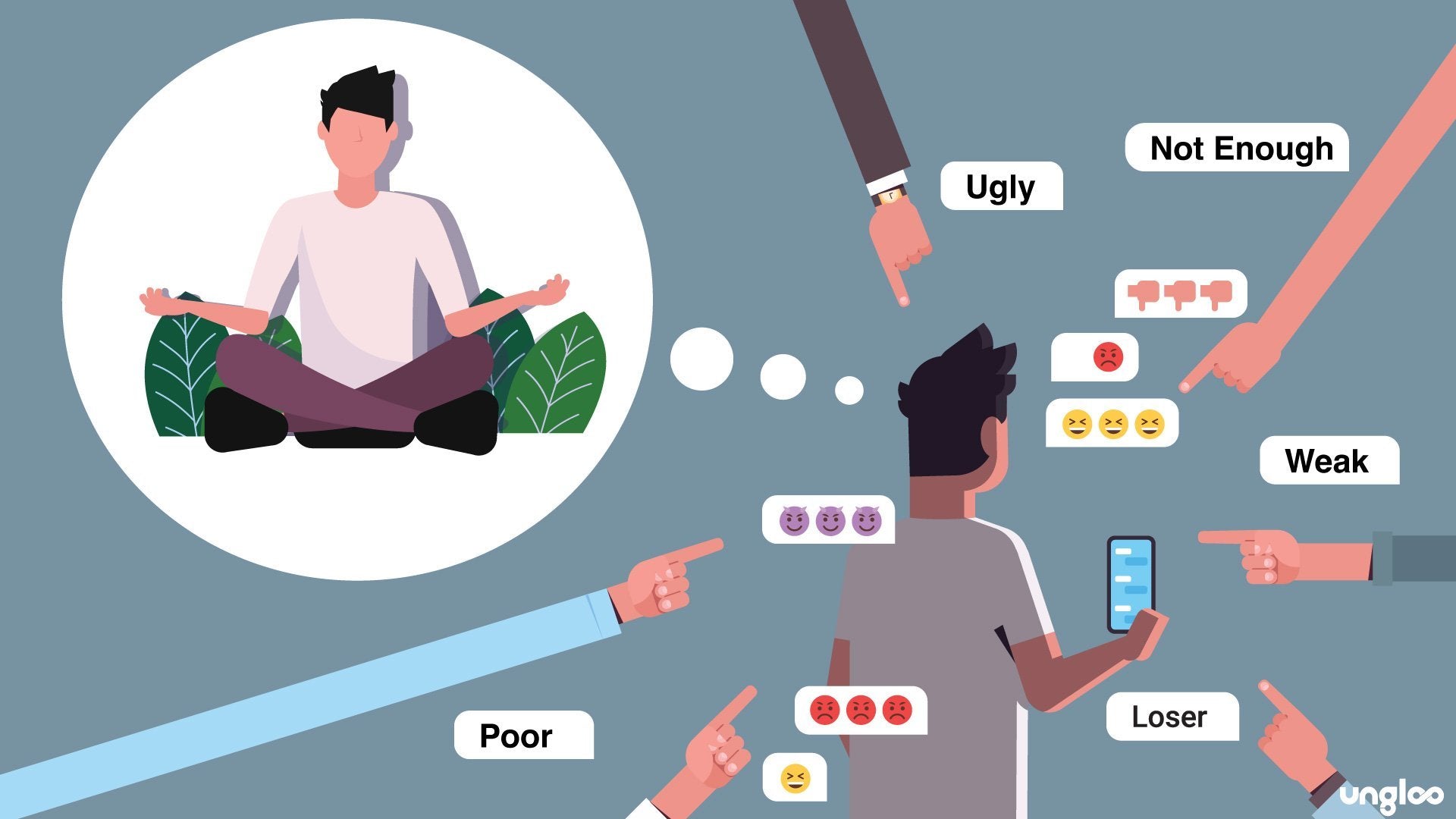Life was good. We just had our first baby. A sweet little girl. Everything was going so smoothly. Then those sleepless newborn nights hit. I had no idea what I was in for! It definitely was rocky. Little, no let's be honest, no sleep hit us like a wall. It felt impossible to know how to soothe our daughter so she could sleep well and be happy. My spouse and I all the sudden had to act like teammates. Tagging in to rock the baby, while the other tried to get a nap, was the only way for us to keep some sanity. Our last minute date nights were gone. We can’t take this baby to the movies! It was so much more work to go out to dinner. Our world was rocked. In those first few weeks as a new parent my mental health took a beating. My daughter, who I love very much, is now 4 years old. Luckily those rough days ended and we now actually get some sleep. But my body gave me a souvenir from that tumultuous time; anxiety.
What is Anxiety?
Anxiety is an emotional response that is defined by worries that do not go away. It causes symptoms such as difficulty sleeping, tiredness, muscle tension, difficulty focusing, and irritability. I would go out in public and break into a cold sweat. I would start feeling irritated thinking about a fun party coming up. Anxiety seemed to wrap its tentacles into every fiber of my life. According to the National Institute of Mental Health over 30% of adults are affected by an anxiety disorder in their lifetime. This statistic is talking about adults with anxiety that is severe enough to be characterized as a disorder. Meaning their feelings of anxiety are persistent and do not go away within 6 months. So while 30% of people have anxiety disorders even more people experience some form of anxiety on a day to day basis. An article from Healthline.com said “Anxiety disorders are the most common form of emotional disorder and can affect anyone at any age.”
Thankfully I am not still buried in anxiety. So how did I survive this time? It started when I stumbled across a podcast called “The Tim Ferris Show”. Ferris is a successful entrepreneur and author. He has interviewed many very successful people such as Malcom Gladwell and Arnold Schwarzeneggar. Ferris has stated that over 80% of the people he interviews use a “daily mindfulness practice”. So, I started to dive deeper into mindfulness and meditation. I found that mindfulness can combat anxiety. In fact an article from the American Psychological Association stated “Researchers reviewed more than 200 studies of mindfulness among healthy people and found mindfulness-based therapy was especially effective for reducing stress, anxiety and depression.”
What is Mindfulness and How Can I Start?
So what is Mindfulness? Mindfulness is essentially training your mind to achieve an inner “smoothness”. You start out by bringing awareness to your body. You turn your attention to what is happening in the moment you are in. You do this by noting your breath, body sensations, thoughts, and feelings. Then rather than assigning labels to what you notice you instead observe and simply let that observation pass without assigning a negative or positive judgment. This helps combat anxiety because when you have an outer stimulus that starts to bother you, anxiety can boil up and overtake your mind. With mindfulness you can stop, acknowledge the panic feeling developing inside you, call that feeling out into the light. Then tell your mind to let it go and move on. Mindfulness helps you develop the ability to realize what is happening and step out of the bonds of anxiety. You create a mental emotional capacity that is bigger than anxiety. With mindfulness you can stop being swallowed up by the dread or stress that typically accompanies anxiety by simply observing what is happening. You will still encounter situations or people that provoke your anxiety. However, with mindfulness your reaction to those situations or people can change.
An article written for Calm shares a few techniques of mindfulness that are really helpful for managing anxiety. The first is breath. When you are anxious you usually are worried about something happening in the future or the past. When you close your eyes and focus on your breath you bring awareness to the present moment. This takes your focus off what the source of your anxiety is.
Non reactivity is another technique I briefly touched on earlier. This is the skill of having a thought and stopping there. As humans we have a knack for having a thought and then projecting the worst case scenario on it. Oftentimes the worst thing never actually happens, so we end up causing ourselves more grief then we actually physically will deal with. If we work on having thoughts and then not reacting to them that will slow down the anxiety wheel.
Noting is another technique that can help with this. When we have a thought we note how it made us feel. If we have a thought that makes us angry we note the anger. If we have a thought that makes us excited we note the excitement. Nothing more just identifying how the thought makes us feel. This helps us accept all emotions and treat them the same. It takes away negative labels. Anger or sadness are no longer bad; they are simply normal emotions just like happiness.
Pausing is another valuable technique. Why anxiety is so consuming is because it speeds up our thoughts. Think of swimming in a pool. To swim from one side to the other it is just a matter of taking a few steady swim strokes. However if you were to swim from one side of a river to the other it would be much harder because of the strong speed of the current. Your steady swim strokes would suddenly become much less effective. Our emotions are like water. They can become overwhelming and speed right over us pushing us off our course if we don’t take the time to pause. Pause the current of emotions so that you can get your bearings and note how you feel.
You don’t have to be perfect. Be patient with yourself and try.
Unfortunately just being aware of mindfulness techniques doesn’t take your anxiety away. The ability to master your mind takes practice. If you are new to meditation or want to focus your meditation on mindfulness you can find a great series called “How to Meditate” on the Calm app. Each meditation is about 10 minutes.. Jeff Warren will guide you through mindfulness exercises. Day 4 takes a look at practicing inner smoothness. This meditation opened my eyes to the power our minds have to stop anxiety. It is common when you first start practicing meditation to become frustrated or feel like “this just isn’t working”. Don’t be hard on yourself, be patient, mindfulness is a tool that you can use the rest of your life and it takes time for your mind and body to sync up. The important step is just keep trying and allow yourself some time to love yourself and grow.
When your mind understands how to be present and pause you start to develop inner smoothness. Mindfulness gives you the power to manage your emotions rather than have them manage you. We invite you to try some mindfulness meditations so that the next time you feel anxious you can pull mindfulness out of your toolbox.


![5 Best Meditation Chairs with Back Support in 2023 [UPDATED]](http://ungloo.com/cdn/shop/articles/Best_Meditation_Seats_Backrest_03-361987.jpg?v=1641945537&width=1920)
